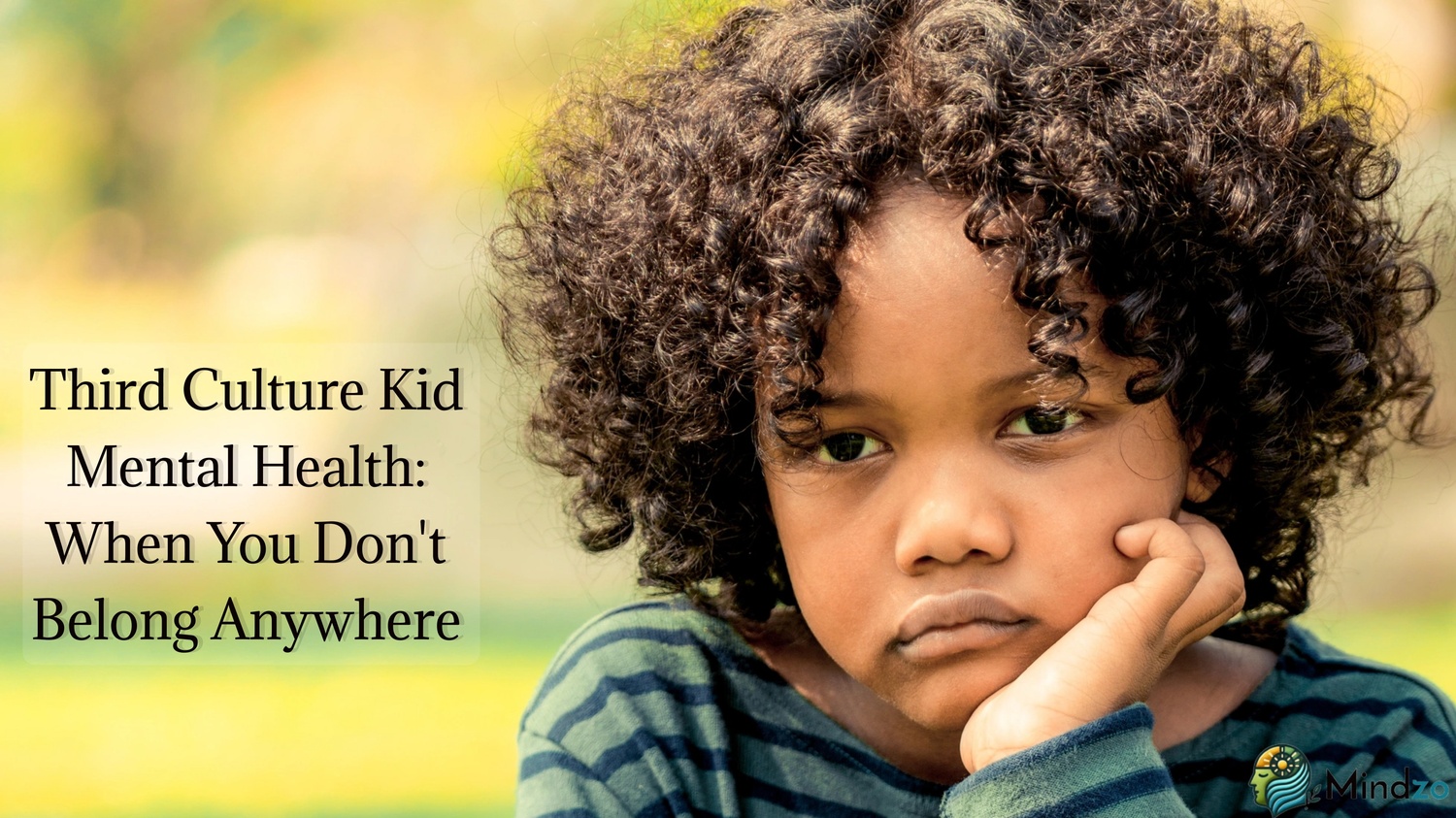Third Culture Kid Mental Health: When You Don’t Belong Anywhere

In today’s globalized society, millions of children are growing up in cultures different from their parents’ heritage. These individuals are often referred to as Third Culture Kids (TCKs). They blend aspects of their parents’ cultural background with the host country’s environment, forming a unique “third culture.”
While the TCK experience brings adaptability, global awareness, and cross-cultural empathy, it also comes with mental health challenges. One of the most common is the feeling of not truly belonging anywhere. This can lead to struggles with identity, anxiety, unresolved grief, and even depression. Understanding the mental health needs of Third Culture Kids is essential for parents, educators, and therapists who support them.
The Rise of the Third Culture Kid Experience
The concept of the Third Culture Kid was first introduced in the 1950s by sociologist Ruth Hill Useem. Initially applied to children of diplomats, missionaries, and expats, the term now includes children of immigrants, global nomads, military families, and cross-cultural marriages.
With increasing globalization, more children than ever before are navigating life across multiple cultures. TCKs often ask themselves, Where is home? Who am I? Where do I belong? These unanswered questions can deeply affect their emotional and psychological well-being.
Strengths Third Culture Kids Develop
Adaptability and Flexibility: Third Culture Kids learn to navigate changes in schools, languages, and cultures with ease. This ability to adapt fosters resilience and problem-solving skills that help them thrive in ever-changing environments.
Cross-Cultural Sensitivity: Because of their exposure to diverse backgrounds, TCKs develop strong empathy and an ability to understand multiple perspectives. They often become natural cultural bridges, making them effective leaders, mediators, and global citizens.
A Global Mindset: TCKs often think beyond national borders. This “citizen of the world” mindset can open doors to careers in international business, diplomacy, education, and humanitarian work.
Strong Language and Communication Skills: Many TCKs are bilingual or multilingual. This strengthens communication, cognitive flexibility, and their ability to connect with people worldwide.
Challenges of the Third Culture Kid Identity
Rootlessness and Identity Confusion: A major struggle is not feeling a true sense of belonging. TCKs may feel disconnected from both their parents’ culture and their host country. This “in-between” identity often creates feelings of confusion and isolation.
Loss and Unresolved Grief: Frequent moves mean repeatedly saying goodbye to friends, schools, and communities. Over time, this cycle can cause unresolved grief and difficulty forming long-term attachments. Some TCKs cope by becoming emotionally detached to avoid the pain of constant loss.
Mental Health Risks for TCKs: Research shows that TCKs may be more vulnerable to anxiety, depression, and perfectionism. The instability of their environment can create chronic stress, relationship struggles, and challenges with self-esteem.
Adulthood Challenges: Many adult TCKs find it difficult to settle down or commit to a single location. Some report struggles with intimacy, identity, and career choices as they continue searching for a place to belong.
The Role of Therapy and Human Connection in TCK Mental Health
Validation and Belonging: Therapy for Third Culture Kids can provide validation by showing them that their experiences are not isolated. Feeling truly heard and understood is a vital part of the healing process.
Processing Loss and Transitions: Professional counselors can guide TCKs through the grief of repeated goodbyes, helping them build healthier ways to cope with loss.
Identity Integration: Therapists can support TCKs in integrating multiple cultural influences into a cohesive identity, reducing feelings of fragmentation.
Community Support: Beyond therapy, TCKs benefit from peer networks and online groups where they can connect with others who share their experiences. This fosters belonging and reduces loneliness.
Strategies to Strengthen Mental Health for Third Culture Kids
Cultivating an Inner Sense of Home: Practices like journaling, mindfulness, and creative outlets can provide stability regardless of external circumstances. A strong inner foundation reduces reliance on geography for belonging.
Building Support Systems: Encouraging TCKs to maintain friendships across distances helps anchor them during transitions. Technology and social media make long-distance connections easier than ever.
Accessing Professional Support: Therapists who specialize in cross-cultural psychology or TCK counseling can guide individuals through identity struggles, grief, and adjustment difficulties.
Embracing a Blended Identity: Instead of choosing one cultural identity over another, TCKs can learn to embrace all aspects of who they are. This “both and” mindset creates pride and a stronger sense of self.
Making Informed Choices About Mental Health Support
Severity of symptoms: Anxiety, depression, or intense loneliness should be addressed by a licensed therapist.
Type of support: Some may benefit most from individual therapy, while others thrive in peer communities or group counseling.
Personal preferences: Introverted TCKs may prefer reflective practices, while extroverted ones might seek group engagement and cultural communities.
In a nutshell
Being a Third Culture Kid is both a gift and a challenge. It fosters resilience, cultural intelligence, and adaptability, but it can also create emotional struggles around belonging, identity, and unresolved grief.
The key to thriving as a TCK lies in integration. By embracing the richness of multiple cultural identities while addressing mental health challenges, TCKs can turn the feeling of “not belonging anywhere” into the strength of “belonging everywhere.”
With the right mix of therapy, peer connection, and personal grounding practices, TCKs can grow into resilient, empathetic, and globally minded adults.
Reference:
-
 Beyond Words: The Emotional Medicine of a Simple HugOctober 27, 2025
Beyond Words: The Emotional Medicine of a Simple HugOctober 27, 2025 -
 Music’s Unique Therapeutic BenefitsOctober 23, 2025
Music’s Unique Therapeutic BenefitsOctober 23, 2025

Leave a Reply